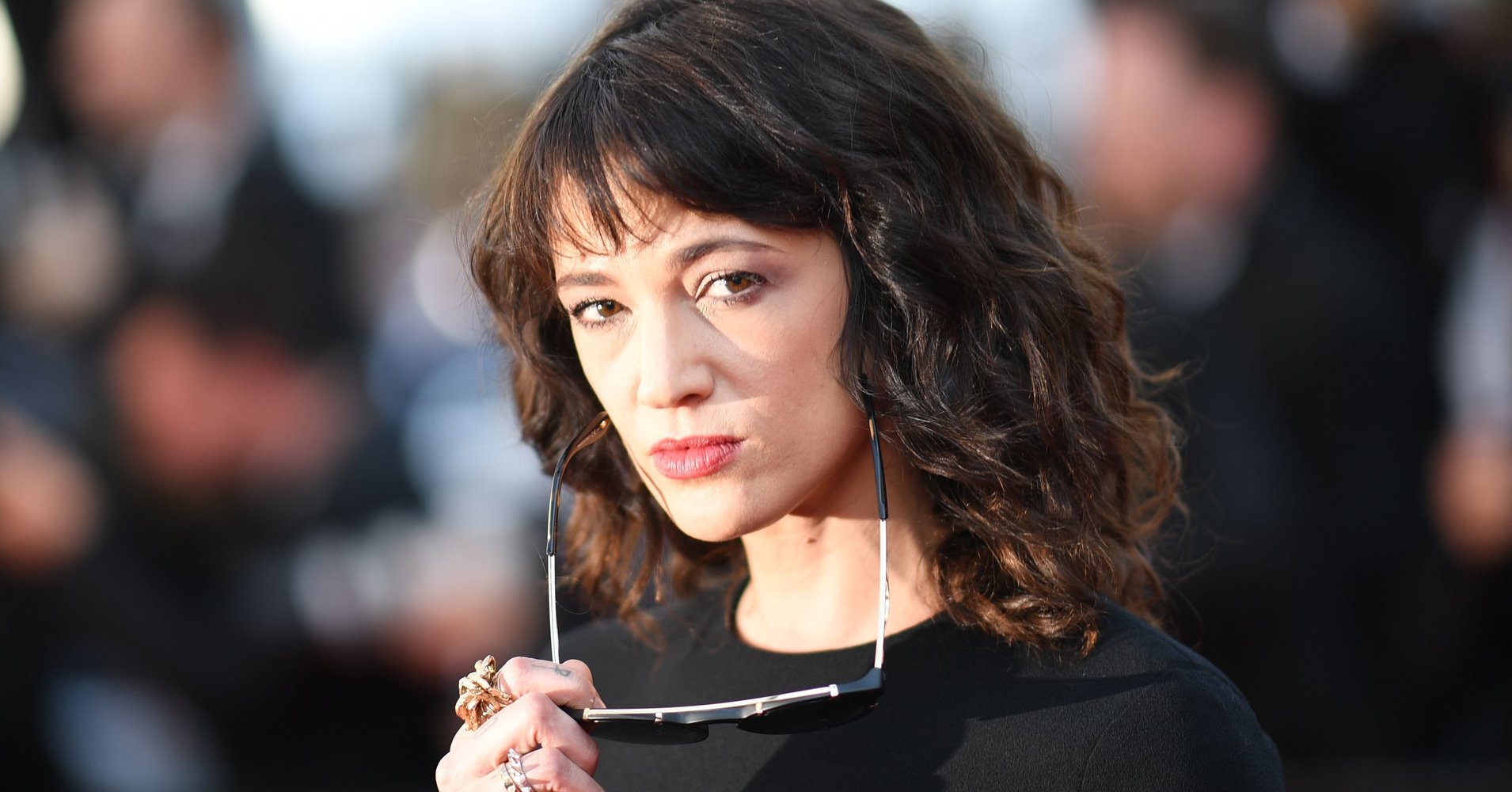[ad_1]

A hotel room. A classroom. Authority figures. Mentors. Abuses of power. Victims who took time to process their traumas. Powerful people who deny the allegations against them.
Over the last two weeks, The New York Times published two noteworthy accounts of alleged sexual assault and harassment. Nearly a year after the Me Too movement erupted, these sorts of narratives feel unnervingly familiar. The only difference is that this time the genders are flipped, and the alleged perpetrators are women.
On Sunday night, the Times reported that Asia Argento, one of the first women to accuse Harvey Weinstein of sexual abuse, had paid her own accuser, former child actor Jimmy Bennett, $380,000. Bennett, who played Argento’s son in a 2004 film, says that Argento assaulted him in a hotel room in 2013, when he was 17 years old and Argento was 37. The age of consent in California is 18. On Tuesday, Argento strongly denied the allegations in a statement, saying that she was “deeply shocked and hurt by having read news that is absolutely false” and that she had “never had any sexual relationship with Bennett.” But on Wednesday morning, TMZ published a photo of Argento and Bennett in bed together, along with texts in which Argento appears to confirm that she had sex with Bennett but did not know he was a minor until later.
A week prior, the Times published a story about sexual harassment allegations leveled by a male graduate student against his adviser, prominent academic and New York University professor Avital Ronell. Nimrod Reitman, the accuser, says that Ronell sexually harassed, assaulted and stalked him over the course of three years. (Ronell denied “all allegations of sexual contact in their entirety.”) After an 11-month investigation, NYU found Ronell responsible for sexual harassment and suspended her for a year. A handful of prominent female academics rushed to Ronell’s defense in a letter to NYU.
This left the Times wondering: “What Happens to #MeToo When a Feminist Is the Accused?”
The answer is: Absolutely nothing changes.
These two stories actually drive home a key point: At its core, the Me Too movement is about corrupt systems of power, and the way those systems are abused to the advantage of the powerful. It’s about the gendered component of power too, but the notion that unaccountable people in charge might exploit their subordinates isn’t some Me Too gotcha. It’s what Me Too has been saying all along.
This is something that Tarana Burke, who first coined “Me Too,” addressed on Twitter after the Argento story first dropped. “It will continue to be jarring when we hear the names of some of our faves connected to sexual violence unless we shift from talking about individuals and begin to talk about power,” she tweeted on Monday. “Sexual violence is about power and privilege. That doesn’t change if the perpetrator is your favorite actress, activist or professor of any gender.”
Stefanie K. Johnson, an associate professor at the University of Colorado, Boulder’s Leeds School of Business, explained in simple terms why power and sexual harassment are inextricably linked: Powerful people engage in sexual harassment both to make themselves feel powerful and to minimize the potential power of their victim.
“In the workplace, I think what often happens is you have people who have power and they exercise that power over individuals who have less power,” said Johnson, or “those who they find particularly threatening in some way.”
Both Argento and Ronell were in positions of power relative to their alleged victims. Argento was reportedly “both a mentor and a mother figure” to Bennett, someone with influence over his professional and personal life, and certainly more influence in the industry. Ronell was Reitman’s adviser, and therefore had a direct line to the future of his career in academia. According Reitman’s official complaint, he was “intimidated by the fact that this was his doctoral adviser and a pillar in his chosen academic field,” and that because of this, “he feared to tell Ronell to stop, despite his extreme discomfort and objection to what was happening.”
And like many of the most public victims of sexual harassment and assault that came forward before them, Bennett and Reitman have indicated that the harassment and assault they allegedly experienced negatively impacted their careers. According to Bennett’s notice of intent to sue, obtained by the Times, the alleged incident between him and Argento was “so traumatic that it hindered Mr. Bennett’s work and income and threatened his mental health.” NYU found that Ronell’s behavior toward Reitman was “sufficiently pervasive to alter the terms and conditions of Mr. Reitman’s learning environment.”
Exploitation is gendered because power is gendered.
Power structures are particularly insidious because they are self-enforcing. When a link in that power structure is threatened, the powerful often close ranks around their own. When the allegations against Ronell became known, a group of prominent female academics sent a letter to NYU that was not intended to be public, testifying to “the grace, the keen wit, and the intellectual commitment of Professor Ronell,” and asking that “she be accorded the dignity rightly deserved by someone of her international standing and reputation.” Critics of Ronell’s saw the defenses being offered up ― that Ronell is brilliant, that her accuser is an opportunistic liar ― as similar to the support that powerful men receive when they’re accused.
To state what should be obvious, none of this undermines the fact that women are more likely to be victims of sexual harassment and assault than men, or that men are more likely to perpetrate sexual assault and harassment than women. (And often when men are victims of sexual abuse, it is at the hands of male perpetrators.) In this country, power is distributed unevenly along gender lines. Men wield more political, social and economic power than women and gender nonconforming people do, and thus more of them abuse that power. Women are also perfectly capable of both holding power and exploiting it; no one has ever said otherwise. But exploitation is gendered because power is gendered. Me Too emerged as a means of addressing not just the power and not just the exploitation but the gendering of both, the way the subordinate position of women in the family carries over into the workplace too.
Right now, people who can’t be bothered to care about exploitation of any kind have suddenly taken a keen interest in the misdeeds of individual women, holding up those misdeeds as somehow pervasively illuminating of humankind’s ineluctable and ungendered capacity for evil. All genders matter, is what they’re saying, in effect, deliberately missing the point.
But maybe there is a larger value in this, however disingenuous the invocation of Me Too in these cases might be. While it’s important not to lose sight of the gender dynamics that have shaped power in America, Johnson sees something like an opportunity. Stories like Reitman’s and Bennett’s can expand our collective thinking on sexual harassment and assault overall, especially within the context of the workplace.
“Maybe if we looked at it from this broader perspective, we could get more traction in making this an organizational issue, not a women’s issue,” she said. “It’s about civil treatment and creating a workplace where anyone can thrive and be treated with respect and dignity.”
[ad_2]
Source link

